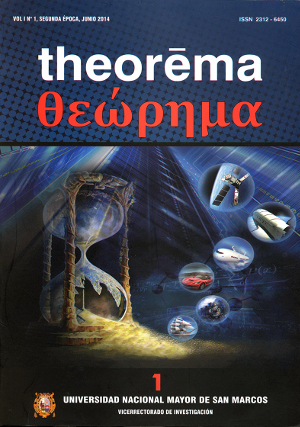Psycholinguistic abilities and reading in children spanish–quechua bilingual and spanish monolingual first degree
Keywords:
bilingualism, psycholinguistic skills, phonological awareness, reading.Abstract
The study sought to determine if differences exist in psycholinguistic skills: phonological awareness, verbal short-term memory, semantic-syntactic, skills in Quechua-Spanish bilingual children (emerging and advanced) compared to monolingual spanish first grade children, and establish whether there is a relationship between those with reading skills. This was examined children of Junin, Huancavelica and Lima with test bilingualism (González 2008), Test of pre reading skills (Velarde et al 2010) and PROLEC -R (Cuetos, F. 2008). The results showed significant differences in psycholinguistic skills in favor of spanish monolingual children. In all tasks emerging bilingual yielded lower. No significant differences in reading processes evaluated. Anyway significant correlation is found between pre-reading skills: syllabic and phonemic awareness tasks of letter identification and recognition of same - different (reading decoding) as well as listening comprehension.Downloads
Published
Issue
Section
License
Copyright (c) 2016 Ricardo Canales G., Esther Velarde C., Magali Meléndez J., Susana Lingán H.

This work is licensed under a Creative Commons Attribution-NonCommercial-ShareAlike 4.0 International License.

Theorema segunda época by Vicerrectorado de Investigación y Posgrado is licensed under a Creative Commons Reconocimiento-NoComercial-CompartirIgual 4.0 Internacional License.
Creado a partir de la obra en http://revistasinvestigacion.unmsm.edu.pe/index.php/Theo/index.
AUTHORS RETAIN THEIR RIGHTS:
a. Authors retain their trade mark rights and patent, and also on any process or procedure described in the article.
b. Authors retain their right to share, copy, distribute, perform and publicly communicate their article (eg, to place their article in an institutional repository or publish it in a book), with an acknowledgment of its initial publication in the Theorema segunda época.
c. Authors retain theirs right to make a subsequent publication of their work, to use the article or any part thereof (eg a compilation of his papers, lecture notes, thesis, or a book), always indicating the source of publication (the originator of the work, journal, volume, number and date).



